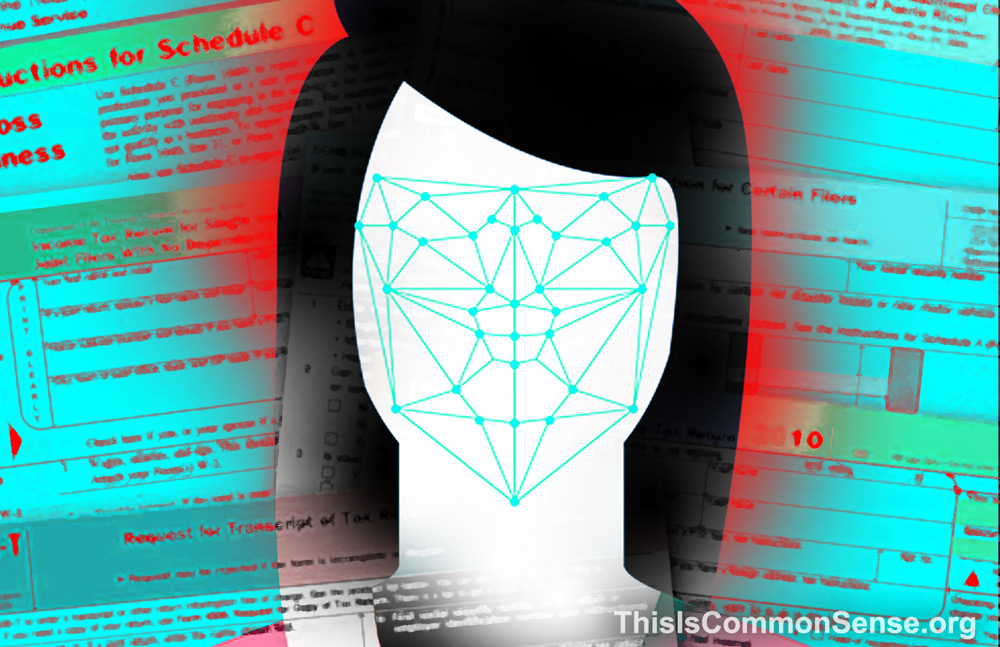Backlash can be good. Against lousy ideas, for example. Sometimes, the response to the backlash is to relinquish the lousy idea, at least temporarily.
We must hope for more than a moment of reprieve from the Internal Revenue Service’s plan to require facial ID recognition of persons who use certain functions of its website.
Both Republican and Democratic congressmen, among many others, were outraged.
It’s good that many congressmen regard some forms of surveillance as beyond the pale. (Meanwhile, legislation to promote scanning of everybody’s online messages at will, Lindsey Graham’s EARN IT Act, is back in Congress. Bipartisan Backlash, can you take a look at this?)
The IRS said that it wanted to use facial recognition technology to help prevent scammers from posing as taxpayers.
But a database of such facial info would itself pose a huge security risk. For decades now, we have been inundated with stories about major databases being hacked.
Nor would legal access have been restricted to the less-than-trustworthy IRS. A third-party vendor would have been involved.
So the IRS has retreated, saying they grasp “the concerns that have been raised” and pledging to pursue “short-term options that do not involve facial recognition.”
The Biden administration has also proposed expanding IRS staff by 80,000+ personnel and permitting minute governmental monitoring of the bank accounts of millions of Americans — notions now in abeyance but undead. And who knows what other innovations in overseeing us are coming up?
Stay on call, Bipartisan Backlash.
This is Common Sense. I’m Paul Jacob.
—
See all recent commentary
(simplified and organized)

1 reply on “Stay On Call ”
Beyond this consideration, we need to get rid of the IRS and enact the FairTax (www.fairtax.org)